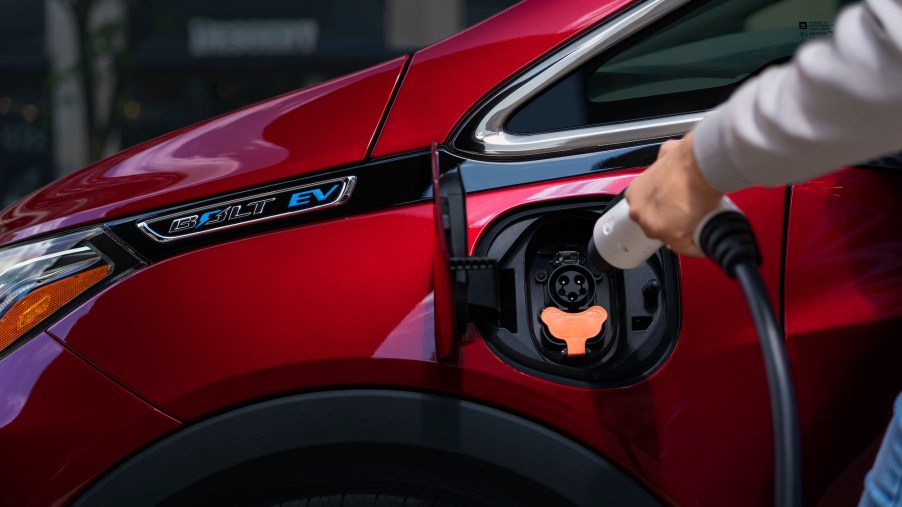
How Much Does It Cost to Charge a Chevy Bolt?
The EV segment is heating up, and one of the most exciting models is the Chevy Bolt. This little electric car is earning high marks as a top choice for commuters. And the purchase price might be the most appealing part: The Chevy Bolt starts at only about $30,000.
If you’re considering this EV, you’re probably also wondering about charging. Where and how can you charge it? And perhaps more important, how much will it cost you to do it?
Where Chevy Bolt owners can find a charge
Charging the battery in a Chevy Bolt is relatively easy if you have access to a charging station. Topping off your charge periodically instead of running your battery down will help reduce the time and effort needed to park at one of these stations. And you can find public charging stations at various restaurants, parking garages, and retailers in most metropolitan areas.
Typically, these locations are Level 2 stations, making it easy to add a quick 25 miles of range per hour. Some areas also offer DC fast-charging stations. Finding these public stations is easy when using an app such as ChargePoint. And recharging your Chevy Bolt at home is easy. Plug the car into your home-based charging unit, and let it juice up overnight.
Associated Chevy Bolt charging costs to consider
Charging a Chevy Bolt isn’t free. And the prices for recharging at public stations vary depending on your region and the station network. According to ChargePoint, averages suggest Level 2 station fees are about $1.18 to add 50 miles of range. A DC fast-charging station usually costs about $2.66 for the same range.
Torque News says new Chevy Bolt owners can expect to spend about $7 to $8 to charge a 60-kWh battery at home. That’s based on an average cost of home electricity used, calculated at around 13.27 cents per kWh.
Electric versus gas in cost and time
When you’re weighing the associated costs and time between a gas-powered vehicle and an EV, the savings can add up quickly with the latter. If a Chevy Bolt costs only about $1.18 to go 50 miles, that’s a win compared with an average of 24 miles per $2.38 gallon of gas. The U.S. Department of Energy rates the Chevy Bolt with 118 miles per charge for combined highway and city driving. With a 259-mile range on a full charge, that’s a significant amount of driving between charges.
How much time you have to spend recharging your battery will matter, too. Fast-charging stations can usually add another 90 miles of range to a Chevy Bolt in about a half-hour. There are also tips for getting the most out of your Bolt battery in the least amount of time.
The folks at Torque News say it’s important to know your ongoing taper points and idle fees, for example. They also say to charge nearly every time you park if possible to avoid fully draining your battery and having to spend lengthy amounts of time recharging from low voltage.
Charging a Chevy Bolt won’t likely be any more of a hassle than filling up a car’s gas tank. Know where to find charging stations in your area, and be mindful of recharging costs. In the end, this EV’s cost savings will likely impress you.


